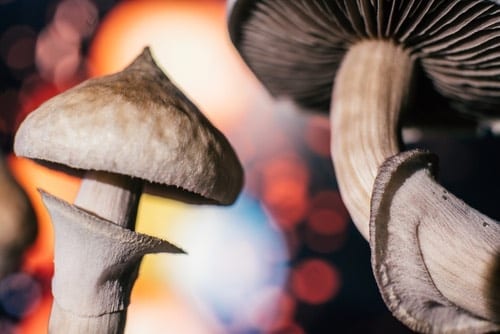
Tech Leaders Are Finding Balance Through Microdosing Psychedelics
Psychedelics are one of the buzziest topics in tech these days. With entrepreneurs vouching for their benefits for creativity, focus and general well-being as well as research institutions and companies seeking FDA approval for medical treatments, these compounds are entering the mainstream.
Microdosing: What’s It All About?
Pretty much what the word sounds like, microdosing involves taking around one-tenth the amount of a normal dose of a psychedelic.
Testimonies from regulars to microdosing include enhanced management of symptoms of PTSD, anxiety, depression, ADHD and even chronic pain. Others microdose to optimize their quality of life.
Although scientific evidence on microdosing’s benefits is somewhat hard to gather, the practice is believed to date back to the 1500s. Modern Western practices began in the 1960s and continued underground after psychedelics were banned in the 60s and 70s, The Washington Post reports.
James Fadiman’s 2011 “The Psychedelic Explorer’s Guide” was one of the first modern writings on microdosing. Some years later, a Rolling Stone article on LSD microdosing disclosed that self-medicating was commonplace among San Francisco tech startups.
But it’s actually been going on for years. Steve Jobs reportedly informed the Dept of Defense of his LSD intake in 1988. He attributed some of his creativity to psychedelics.
The Wall Street Journal reported that Tesla TSLA and SpaceX’s CEO Elon Musk consumes ketamine and Google GOOG co-founder Sergey Brin psychedelic mushrooms,
Views From A Leadership Coach
Benzinga interviewed someone who’s well acquainted with the world of high-achieving tech professionals.
Lauren Mugglebee works with clients seeking personal growth and behavior modification. She says that traditional pharma drugs used for better focus or anxiety issues, “disable you from really being able to connect with your body and feel.”
While she incorporates different modalities into her coaching, Mugglebee highlights the unique role of microdosing psychedelics -noticeably psilocybin and LSD to help people transition away from pharmaceuticals, and pay close attention to themselves.
This is a key issue, as most top executives in the field are addicted to intensity, which typically leads to unreflectiveness and showing a lack of careful thought. “They’re addicted to working. They’re addicted to making money. They’re addicted to being right. They’re addicted to being on autopilot so that they can get done what they need to get done,” Mugglebee explains.
A productive and achievements-oriented culture is a perspective Mugglebee knows something about, after 20 years of working in tech herself.
Microdosing psychedelics, she notes, won’t resolve all problems. The process involves noticing what is going on around one without judgment. It is also dependent on where each person is in “their journey of building their self-awareness of building their ability to be present, to be in their body and to be in deep inquiry.”
Mugglebee also stresses the need for careful titration, that is starting low and going slow in order to find the optimal dose. It is a process that fosters self-awareness around the body and emotions and endorses clinician consultation toward a better-tailored outcome.
Her journey into microdose coaching began two and a half years ago under the guidance of Paul Austin, the “trainers’ trainer.” Austin has been an active advocate for quite some time, starting underground and now out in the open via his Third Wave Community podcasts that feature such guests as major sector investor Christian Angermayer



